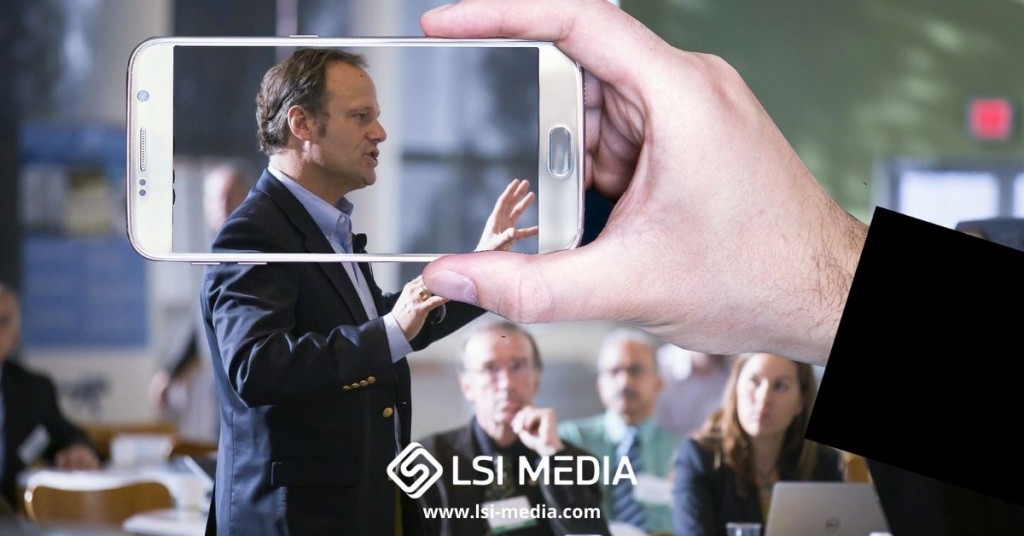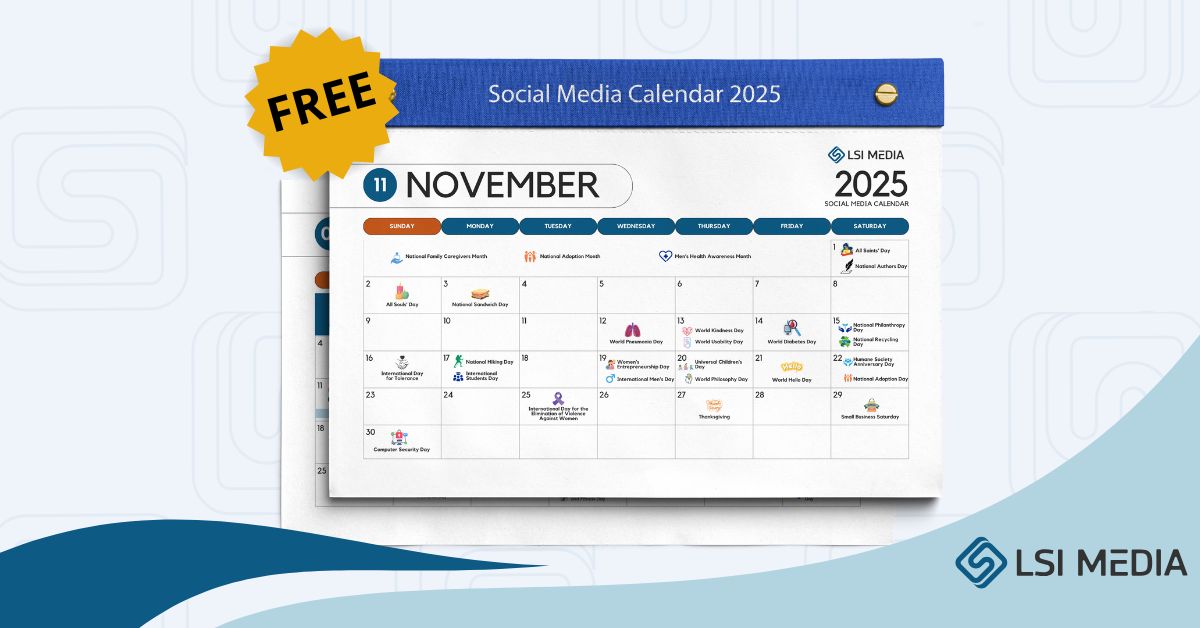[ez-toc]
6 Must-Watch TED Talks on Psychology of Influence for Social Media Marketer
For the last decades, TED talk had helped us with its several short but powerful talks. Since 1984, this global community has brought us knowledge on topics from science to business to global issues. It is an ideal watch if you want to better understand the newest trend, including digital adoption and social media usage.
Social Media Networks have evolved from being a channel to reach out to friends and family to be an arena for marketing. Most businesses want to follow the trend of becoming viral on these platforms, but do not know where to begin. The available guidelines on the web seem outdated and crucial information like social media marketing needs to be fact-checked and should be thoroughly researched.
TED has a fair number of talks on the subject of Social Media Marketing and not all of you have the time to watch them all. With this guide, we have spare you the hassle of diving into the pool of talks and picking out the Top 6 Must Watch Ted Talk for Social Media Marketers adapting Psychology of Influence.
1. “How Craving Attention Makes You Less Creative”
Speaker: Joseph Gordon-Levitt
Duration: 12 minutes and 45 seconds

In April 2019, Actor Joseph Gordon-Levitt revealed the two most powerful feelings in the world: “paying attention and “getting attention”.
He pointed out that technology, specifically Social Media Networks has been an important tool for anyone who craves attention. He cited that with the existence of this platform the channel of distribution has been democratized. But unintended consequences go along with this privilege, we tend to jeopardize our creativity.
People are so caught up in getting the attention that they dismiss the importance of being creative. Social Media Marketers should not only focus on getting attention, but they should also consider creativity.
He asked one relevant question: “How does a social media platform like Instagram make money?” We are aware that it is not selling photo-sharing instead it’s selling attention. As social media marketers, it is a big deal that we can attract a set of followers, but it is more important that we can retain them and earn their loyalty. We can achieve this by paying attention to their needs and feedbacks. From there, we can make use of our creative juice and give them what they want.
It is crucial that we keep this in mind, “The more you go after that feeling of paying attention, the happier you can be. But the more you go after the feeling of getting attention, the unhappier you can be.”
2. “What makes something go viral?”
Speaker: Dao Nguyen
Duration: 10 minutes and 19 seconds

Buzzfeed’s publisher Dao Nguyen introduced the framework “cultural cartography”. She shared the company’s biggest viral sensation with Facebook Live Video. It was the video of baby goats in an employee’s office that was intended for a workplace inside joke.
The video garnered an unexpected number of views of 90,000. She explained that their team had a couple of discussions on how this video performed than expected. In the end, their team figured out that its success was not about the content of the video but how it made the viewers think and feel.
With this she elaborated the factors that back up this framework;
- “Makes me laugh”
People appreciate the things that make them laugh. They will willingly share content that is funny with the intention of others laugh the same way they did.
- “This is me”
People tend to showcase themselves on social media and if they can find contents that stand by this eagerness, they will not hesitate to post it.
- “Help me connect with another person”
Social media networks are initially made to connect with our friends and family. It is still an important aspect to reach out to your target audience. Through this aspect, companies can go beyond and above by establishing a deeper connection with their audience rather than putting themselves in their shoes.
- “Helps me…”
This aspect covers how a person identifies the things that help him/her in terms of how they settle an argument or how it helps them learn something about themselves or others.
- “Makes me…”
This helps a person discover how something can make them feel whether happy, curious, or how can they restore their faith in humanity.
Cultural Cartography changes the relationship between media and data. If we can capture in data what really matters to our audience, then we can create better content that will enable us to reach them better.
3. What obligation do social media platforms have to the greater good?
Speaker: Eli Pariser
Duration: 16 minutes and 57 seconds

Eli Pariser is an online democracy advocate who leverages technology to support build better and more democratic societies. During his presentation in Edinburg, Scotland last July 2019, he asked these questions;
- “If you were Twitter or Facebook and trying to rank content for democracy rather than ad clicks and engagements, what might that look like?”
- “What happens when we think of platforms as spaces?
He then answered the first question starting with his realization that this suggests that this statement is an information problem or a content problem. Moreover, the platform crisis is a people problem.
This leads to the next question. He explained that in social psychology, spaces shape behavior. Spaces shape behavior by the way they are designed and by the way they encode certain norms on how to behave.
As Social Media Marketers, we need to be aware of how we build our platform. We need to be responsible for the content that we present to our audience. We need to create an online space that is public-friendly. This can be achieved we are familiar with how to create better physical spaces.
It is important to remember that, Humanity moves forward if we find new ways to rely on understand each other. If online digital spaces are going to be our new home let’s make them comfortable and beautiful place to live in.”
4. How to Seek Truth in the Era of Fake News
Speaker: Christiane Amanpour
Duration: 17 minutes and 37 seconds

The world-renowned journalist Christiane Amanpour revealed the sad truth that the existence of social media worsens the problem of fake news. She stated that this situation is very alarming because nowadays, it is very difficult to find the truth. This means that if there is no way of identifying the truth, it is hard to solve problems in our society.
As a journalist, she lived by the golden rule of objectivity.
Christiane elaborated important key points that a Social Media Marketer should know;
- Be careful where you get your information from.
- Take responsibility for what you read, listen to, and watch.
- Make sure that you go to the trusted brands for your information.
“No matter whether you have a wide, eclectic intake, really stick with the brand names that you know, because in this world right now, at this moment right now, our crises, our challenges, our problems are so severe, that unless we are all engaged as global citizens who appreciate the truth, who understand science, empirical evidence and facts, then we are just simply going to be wandering along to a potential catastrophe”.
5. How Amazon, Apple, Facebook, and Google manipulate our emotions
Speaker: Scott Galloway
Duration: 18 minutes and 28 seconds

In October 2017, Scott Galloway revealed how the four biggest online companies manipulated our emotions and succeeded as a business. He compared these companies to the different organs of the body, brain as to google, the heart is Facebook, the consumptive gut is amazon, and the reproductive organ is apple.
For the past years, the online community has worshipped these four firms that they earned more than any country’s GDP. This happens because, it, not their fault, it is our fault. These firms are not concerned with for-profit companies. They are just doing what they are supposed to do.
Social Media Marketers must be responsible enough to use these platforms to take care of society. We should always prioritize the welfare of the people and never take advantage of their vulnerability. Although Google is God, Facebook is love and Amazon will be the first company worth $1 Trillion, it is still our responsibility to be responsible users.
6. What’s Your 200 Year Plan?
Speaker: Raghava KK
Duration: 10 minutes and 53 seconds

As Social Media Marketers, it will be a great opportunity if you put up a legacy. Through this TED Talk, Raghava KK described a 200 Year plan that he and his wife established. He explained that it is about considering what you leave behind personally and professionally.
He defined our brain as a Biased Curator, most of us only remember what we want to be our memory. With the existence of technology, we can store digital memories that can contribute to our legacy. This way we can create digital traces that society can look back to even after we are gone.
He also mentioned that creating a legacy is not purely based on your education, but your creativity has a lot to add to this endowment.
It is important to think beyond yourself and know the impact of the legacy that you want to contribute, in the future.
Conclusion
These six TED Talks on the psychology of influence provide valuable insights and strategies for social media marketers. By understanding the cognitive biases and principles discussed in these talks, marketers can better craft and execute their social media strategies to effectively influence and engage their target audience. The talks touch on various aspects such as the power of storytelling, creating emotional connections, and leveraging social proof to drive action.
Social media marketers can learn about the importance of building trust and credibility with their audience, as well as the impact of social influence and peer pressure in shaping consumer behavior. Additionally, these talks highlight the significance of understanding human psychology and behavior in order to create impactful and persuasive content.
By incorporating these principles into their social media campaigns, marketers can enhance their ability to drive conversions, increase brand loyalty, and ultimately achieve their marketing goals. Overall, these TED Talks provide social media marketers with valuable knowledge and strategies that can greatly improve their success in this rapidly evolving and influential field.
FAQs:
1. What are the best TED Talks on the psychology of influence for social media marketers?
There are several TED Talks that are highly recommended for social media marketers looking to understand the psychology of influence. The top 6 TED Talks on this topic are:
- Talk 1: How Craving Attention Makes You Less Creative
- Talk 2: What makes something go viral?
- Talk 3: What obligation do social media platforms have to the greater good?
- Talk 4: How to Seek Truth in the Era of Fake News
- Talk 5: How Amazon, Apple, Facebook, and Google manipulate our emotions
- Talk 6: What’s Your 200-Year Plan?
2. How can TED Talks on the psychology of influence benefit social media marketers?
TED Talks provide valuable insights into human psychology and the science of influence, which can be extremely beneficial for social media marketers. By understanding the psychological principles behind influence, marketers can create more effective and persuasive social media campaigns, engage with their audience more successfully, and drive desired behaviors.
3. What topics do these TED Talks cover?
These TED Talks cover a range of topics related to the psychology of influence. They may explore concepts such as persuasion, behavioral psychology, neuromarketing, social psychology, cognitive biases, and more. Each talk offers a unique perspective on how these concepts can be applied in the realm of social media marketing.
4. How long are these TED Talks?
The duration of each TED Talk may vary, but on average, they range from 10 to 20 minutes. These talks are designed to deliver powerful insights and convey important messages within a limited timeframe, making them perfect for busy social media marketers who want to learn quickly and efficiently.
5. Are these TED Talks suitable for beginners in social media marketing?
Yes, these TED Talks can be enjoyed by both beginners and experienced social media marketers. While they provide valuable insights into the psychology of influence, they are accessible and engaging for individuals at all levels of expertise. These talks can help beginners grasp foundational concepts and inspire experienced marketers with fresh perspectives.





















